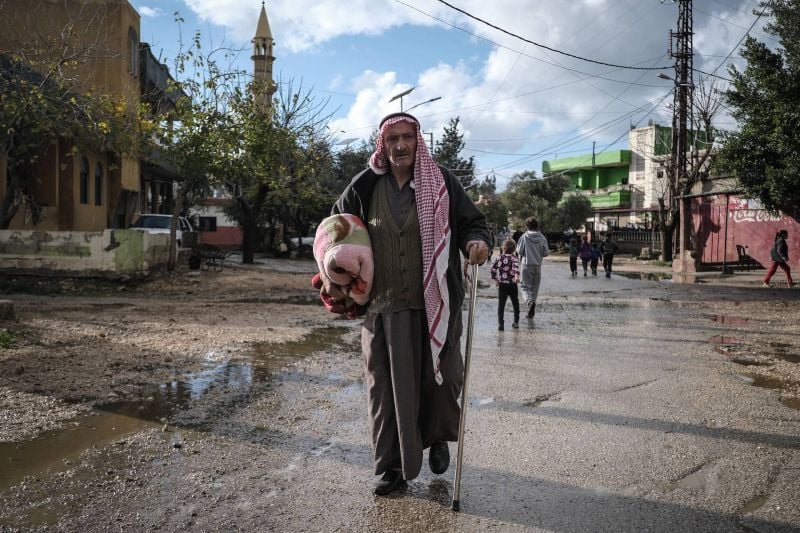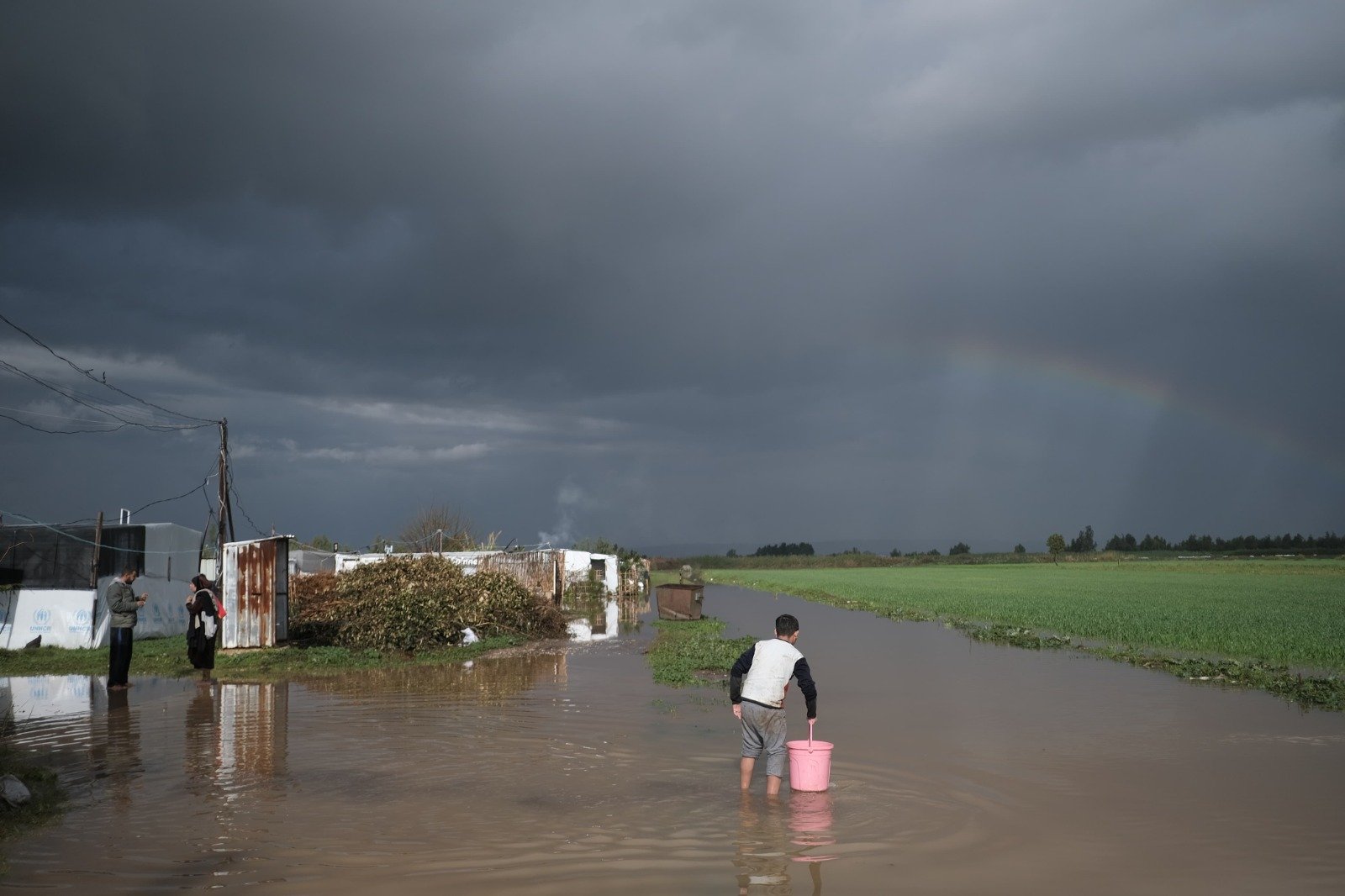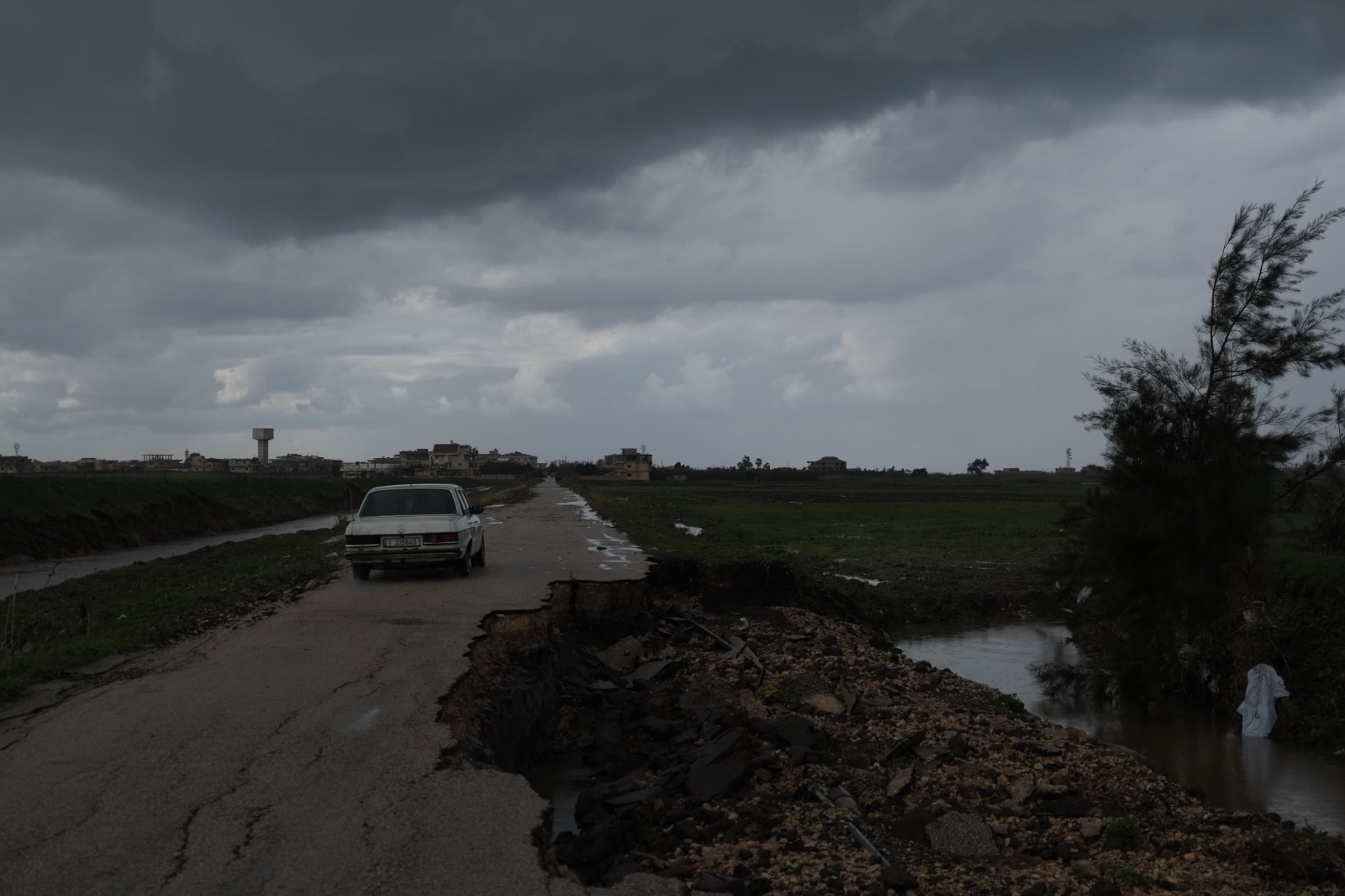
Seventy-year-old Ahmad al-Bahadi, originally from Hassakeh in northwestern Syria, walks back to his waterlogged tent after sheltering for several days in a local mosque. Jan. 15, 2024. (Credit: João Sousa/L’Orient Today)
BEIRUT — Days after a devastating flood that destroyed hundreds of Syrian refugees’ tents and inundated local houses in Akkar, nearly 2,000 people are displaced in a mosque, school and anywhere they can find room to sleep.
L'Orient Today reported on Saturday that several fields and properties in the Akkar region were flooded, particularly in the Wadi Khaled area, as were numerous refugee camps, notably in Sheikh Zennad, Kenayseh and Summaqieh. The refugees were evacuated by the Lebanese Red Cross and the army, to schools, mosques and other such buildings.
During the storm, the al-Kabir and al-Istwan rivers overflowed in an unprecedented manner due to the heavy rains, leading to floods which reached a height of more than a meter and a half, according to our correspondent in the north Michel Hallak.
Residents Summaqieh in Akkar told L'Orient Today that the water reached waist-level inside of their houses.
Even though the water level in agricultural fields, orchards and the vicinity of a large number of homes and tents for displaced Syrians decreased relatively, especially in the towns located directly on the banks of the two rivers, Akkar residents are still suffering from the consequences of the storm.

A boy carries water to his tent in an informal refugee camp on the outskirts of Summaqieh in Akkar, Jan. 15, 2024. (Credit: Joāo Sousa/L'Orient Today)
'Catastrophic losses'
The mukhtar of Summaqieh Abdallah Darwish said that the storm caused "catastrophic losses" to the people and the farmers of the region, saying that "things have gotten completely out of control."
Darwish also called the minister of public works to give his directions to begin repairing the highway that links the town of Summaqieh to Arida (Akkar), which was ravaged by torrential waters and turned into holes and gullies.
According to our correspondent in the north, the storm also destroyed hundreds of beehives.
During a visit in the affected areas on Monday, L'Orient Today observed that 11 camps in the Summaqieh area were completely flooded and that people's tents and belongings were destroyed.
L'Orient Today also found out that 17 families (91 people), mostly women and young children, are sheltering in the former mayor of Summaqieh's home. These people do not know where to go as they do not have tents anymore.
'Everything inside is gone'
According to the municipality of Summaqieh, who surveyed the displaced families, 341 families (1,754 individuals) were displaced by the floods.
Asked about the situation of his tent in the town, Abu Aya — a 36 year old father sheltering in the mayor's home with his family — told L'Orient Today that “everything inside is gone."
In one of the camps, people walk barefoot while others wear rain boots or rubber flip flops, with water to their shins, waiting to access the tents. They were using buckets to try and remove water, L'Orient Today witnessed.
Inside one of the house, Abdul Razzak Awed Chakra, whose house had water flooding inside it up to waist height, tells L'Orient Today that 45 to 50 out of 250 of his sheep died due to the floods, and 45 more are expected to die from sickness.

A collapsed portion of a road after a winter storm that brought what villagers called the "worst flood in years" in Summaqieh, Akkar. Jan. 15, 2024. (Credit: Joāo Sousa/L'Orient Today)
People's anger
According to our correspondent in the north, people in Akkar expressed their anger at what happened because it was not the first time that the rivers overflowed. They hold authorities responsible for always neglecting the demands of strengthening and deepening the riverbeds before winter and implementing the decision to establish a berm on the Lebanese bank of the al-Kabir river.
They also called the caretaker cabinet and the Higher Relief Commission to assess the damage caused by the storm and provide quick compensation to the people.
Our correspondent also reported that, for the third day in a row, the Lebanese Red Cross teams and the Lebanese army will distribute water and bread to the Lebanese and Syrian families whose homes were flooded.
Syndicate of Greenhouse Farmers Union's statement
The syndicate of Greenhouse Farmers Union called for declaring a state of emergency that quickly restores life to the land and farms in Akkar, according to a statement published by state-run National News Agency (NNA).
The syndicate also called for quickly compensating those affected and ensuring the relaunch of an alternative agricultural season.